Langfang hosts celebration of dramatic arts, Xing Wen reports.
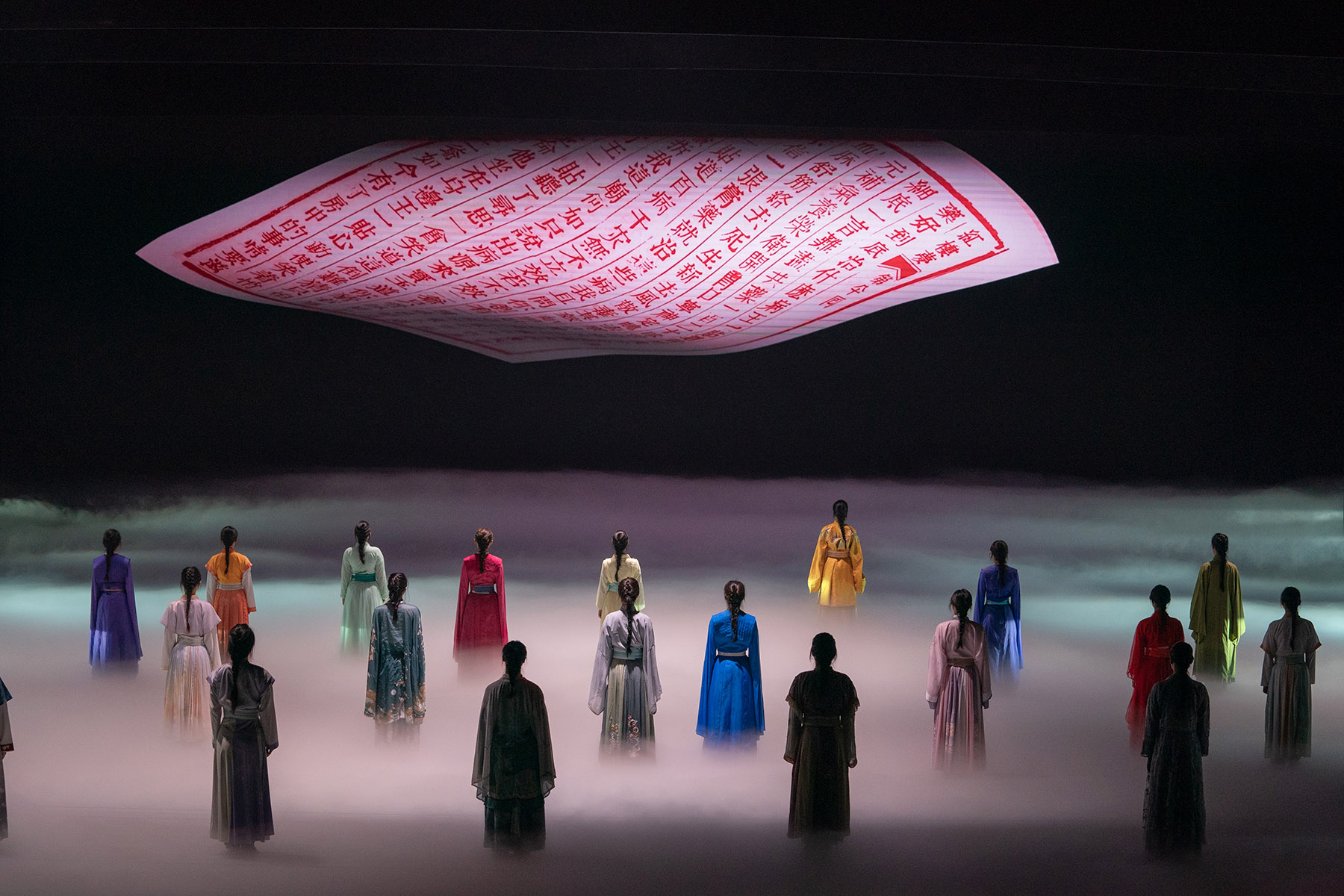
Within the hallowed halls of a theatrical complex in Langfang, Hebei province, where the intertwining corridors of indoor theaters and myriad scenario spaces converge with the open expanse of outdoor stages, one can effortlessly immerse themselves in the rich world of the dramatic arts.
Traditional Chinese operas, contemporary dance, mime, multimedia theater, musicals and a variety of other performances by both artists from home and abroad adorn the tapestry of experiences.
In some chambers hosting theater workshops, led by artists from countries including France, Cuba and Poland, visitors, irrespective of language barriers, blur the lines between performer and spectator, delving into self-discovery through artistic expression where drama and music intertwine.
READ MORE: Sparking youthful passion for the stage
That's a scene from the 2024 World Theatre Day celebrations recently co-hosted by the China Theatre Association and the International Theatre Institute, a leading performing arts organization founded in 1948 by theater and dance experts and UNESCO.
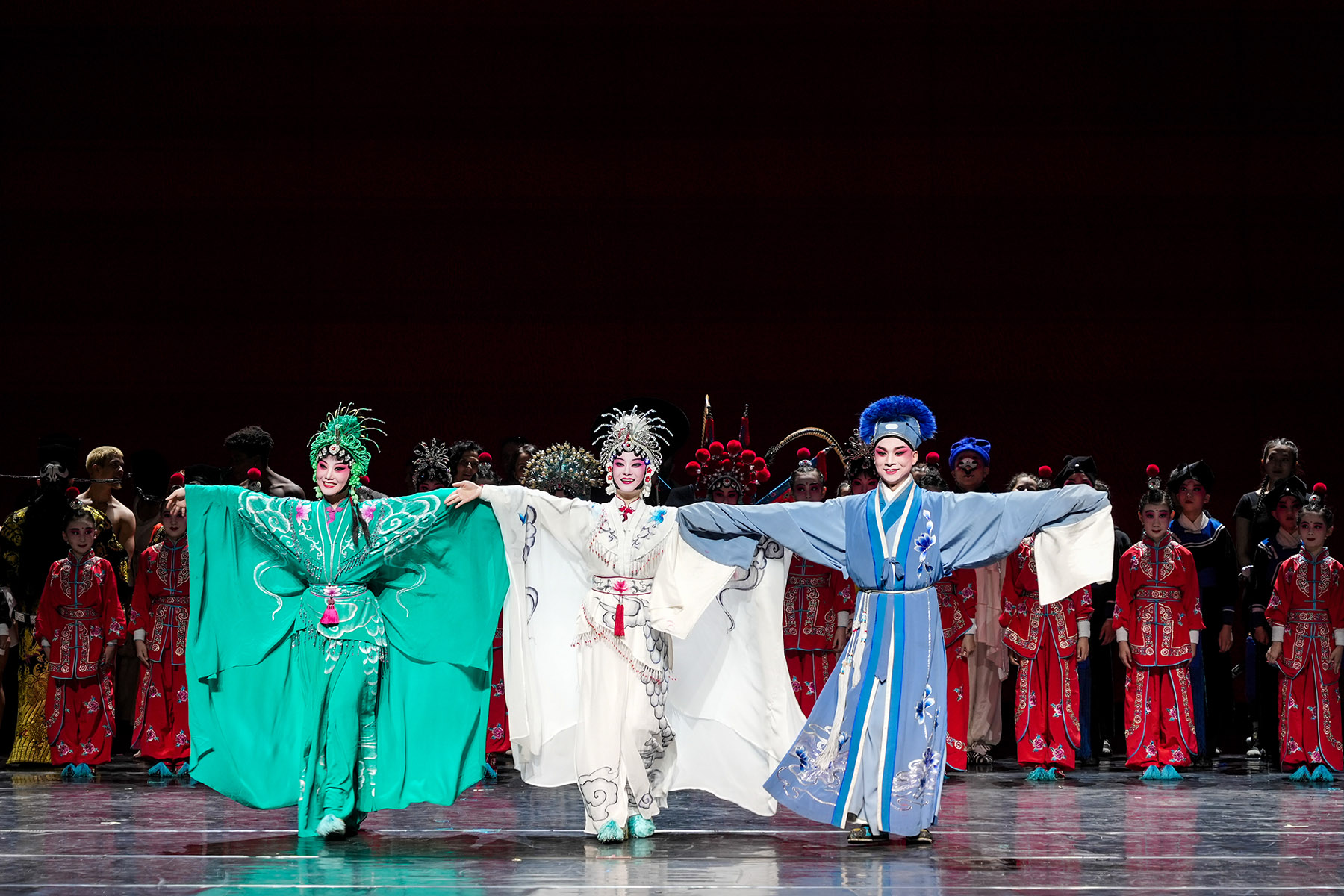
March 27 marked World Theatre Day, initiated in 1962 by the theater institute headquartered in Paris. It celebrates the art form of theater and raises awareness among governments about its cultural and economic significance.
This year, the celebrations took place at Langfang's Silk Road International Arts Center, with over 300 guests from around the world attending the event, and more than 1,000 spectators enjoying the performances.
As an integral part of the celebrations, an event called A Dialogue of Global Theatre Practitioners invited notable figures to deliver keynote speeches addressing their understanding of how theatrical arts influence individuals and society.
These figures included Pu Cunxin, a distinguished stage actor and president of the CTA; Lemi Ponifasio, the World Theatre ambassador of the theater institute; Jessica Kaahwa, a director-actress from Uganda, and Chen Yan, a playwright and vice-president of both the Chinese Writers Association and the CTA.
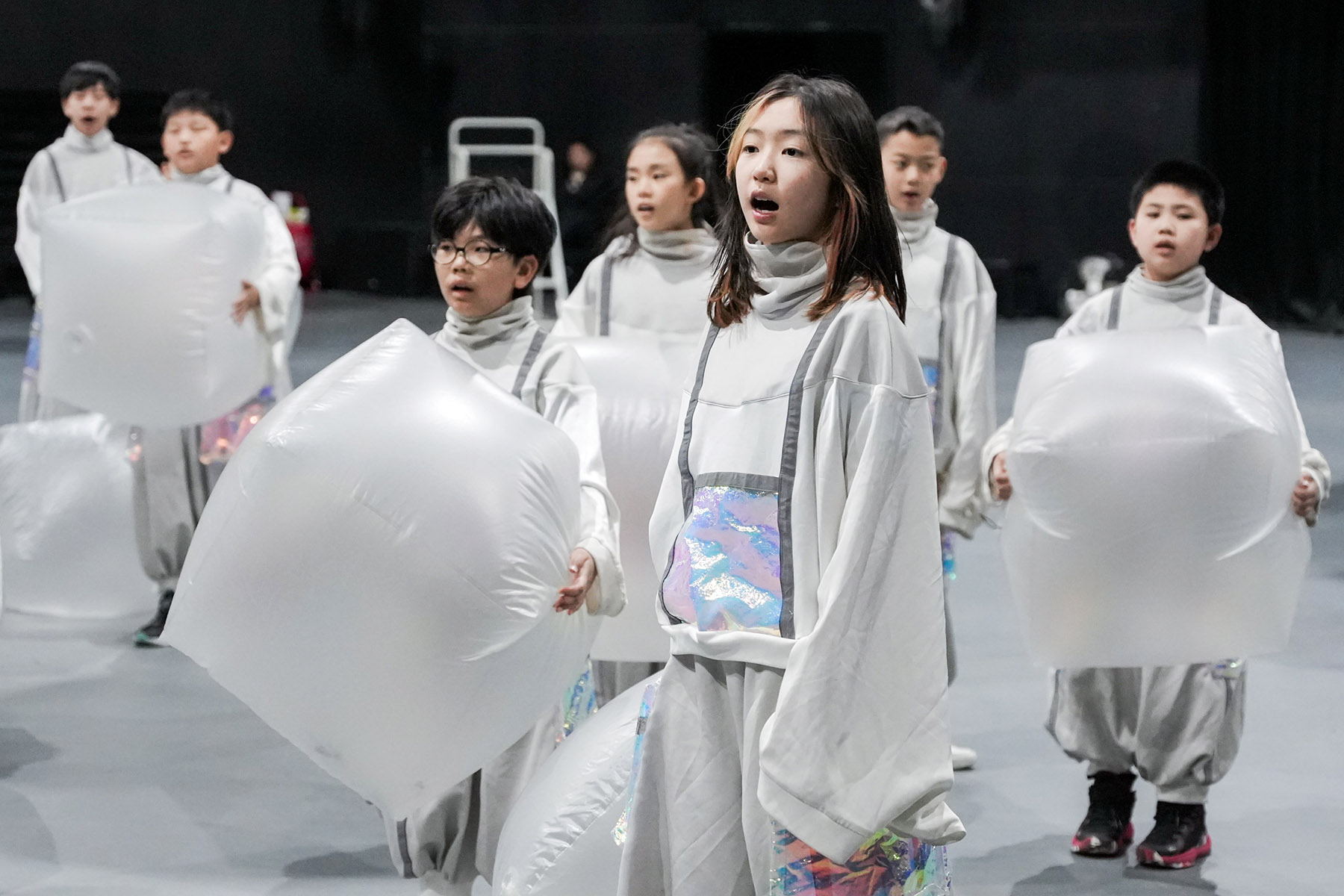
Pu holds that art serves as a bridge among nations with different languages and cultures.
"I have performed in many plays reflecting both ancient and modern China, as well as classics from abroad, such as those written by Shakespeare, Chekhov and Ibsen," he says.
"These foreign literary classics have enriched me greatly. At the same time, I interpret their stories using my own understanding, imagination and expressive methods, making them a part of global theater."
Most of the festivities were held in the theatrical theme park, Unique Dream of Red Mansion. Themed around the literary masterpiece A Dream of Red Mansions written by Cao Xueqin during the Qing Dynasty (1644-1911), the park adopts an avant-garde approach to explore the inner world of the novel's characters and continue the narrative from the perspective of readers across different eras through various immersive theaters and scenarios.
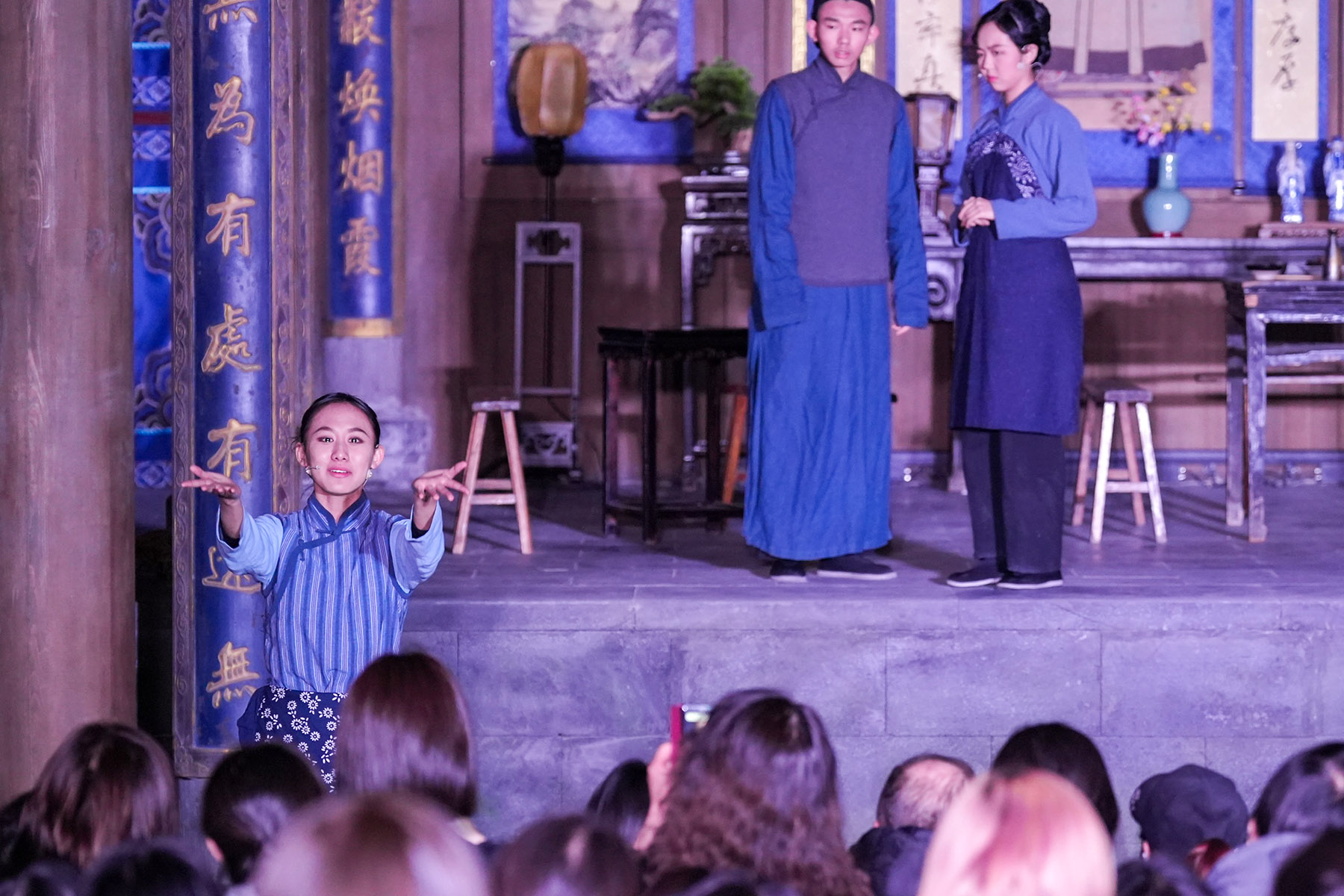
Pu mentions that he has visited the park twice and is impressed by its architectural marvels.
"I hope such international events will allow theater practitioners from around the world who come to Langfang to appreciate unique Chinese theatrical artistry and enable Chinese and foreign theater practitioners to engage in dialogue, and foster understanding, communication and collaboration," Pu adds.
Kaahwa further emphasizes the importance of cultural exchange for theater practitioners.
"We need children to immerse themselves in the rich cultural diversity of different regions by participating in local traditions, rituals and storytelling practices," says Kaahwa, who is also a veteran drama educator. "Practitioners gain valuable firsthand experience, which not only enriches their artistic understanding but also enhances their appreciation of the diversity of human expression.
"By learning from local traditions and storytelling techniques, theater practitioners can infuse their work with authority and relevance, creating performances that resonate with the audience on a profound level. In essence, this cultural exchange fosters a rich exchange of knowledge and creativity, benefiting both the practitioners and the recipient community."
Hao Rong, president of the Central Academy of Drama, agrees.
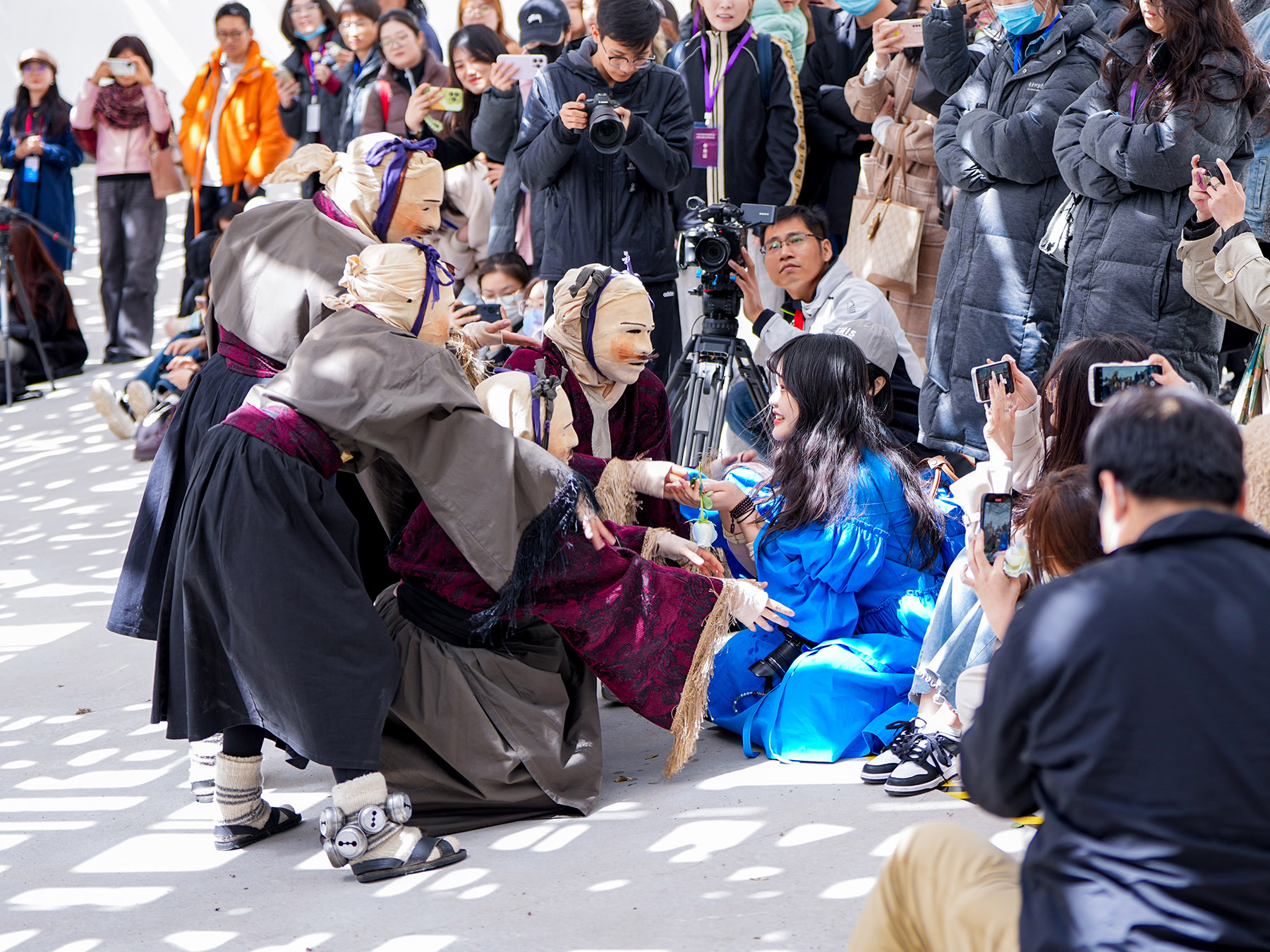
He further underscores the crucial role of theatrical arts in fostering the personal development and critical thinking abilities of young people. He advocates for drama as a pivotal aspect of aesthetic education for the whole of society.
"Through engaging in role play in theaters, adolescents could actively explore societal dynamics, diverse characters and narratives, thereby cultivating their own ethical, moral and philosophical outlooks," he says.
He also notes that modern theater education in China began later than in the West, leading to a gap. To bridge this divide, he emphasizes the importance of professionalizing drama education and integrating it into teacher-training programs.
In the midst of ongoing wars and turmoil in certain regions of the world, a message titled Art Is Peace, penned by the 2023 Nobel Prize in literature laureate Jon Fosse for the 2024 World Theatre Day, was presented during the festivities.
In his address, he emphasized: "Art, good art, manages in its wonderful way to combine the utterly unique with the universal. It lets us understand what is different — what is foreign, you might say — as being universal. By doing so, art breaks through the boundaries between languages, geographical regions, countries. It brings together not just everyone's individual qualities but also, in another sense, the individual characteristics of every group of people, for example, of every nation."
Chen adds that drama is one of the oldest forms of art that tells the stories of civilizations.
"Through portraying various challenges and conflicts faced by humanity, as well as how people collaborate and communicate to resolve these issues, it conveys the values of human civilization. Drama holds a unique advantage in communicating shared human emotions, thoughts and values," Chen says.
Therefore, Chen encourages theater practitioners to leverage art's communicative power to explore mutual understanding and trust, aiming to bridge the gap and foster a "hand-in-hand" connection among people from different cultural backgrounds.
ALSO READ: Fighting spirit drives dancer's ambition
During the celebration, there were also roundtable sessions held with the themes A Bridge to Connect People's Hearts, A Platform for Cultural Diversity and A Stage for the Young, further highlighting the different roles theater plays in today's world.
Also, the theater institute, the CTA and the Silk Road International Arts Center in Langfang have jointly signed a memorandum of cooperation to advance the planning and promotion of the 32nd World Theatre Festival in 2025 to be held in Langfang. This marks the potential hosting of the international festival in Langfang, promising a unique cultural event for global theater artists and enthusiasts.
Contact the writer at xingwen@chinadaily.com.cn


